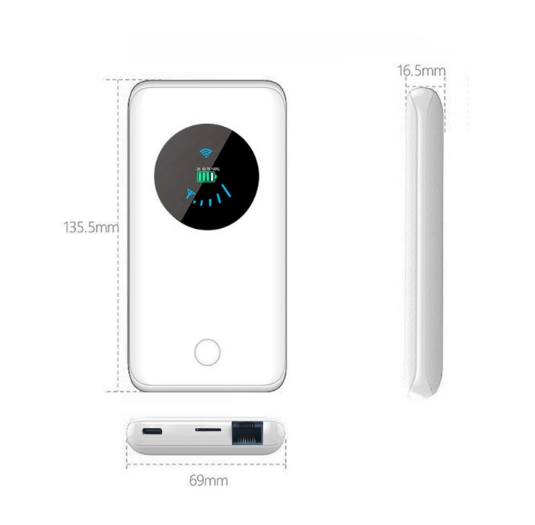MiFi vs WiFi - What's The Difference?
Are you often confused between WiFi and MiFi? You're not the only one! Despite having similar names, WiFi and MiFi represent two distinct technologies. In this article, we will define both WiFi and MiFi, as well as clarify their key differences.
Understanding WiFi
WiFi is commonly associated with "wireless internet." However, it is essential to understand that WiFi itself does not represent the internet.
WiFi stands for Wireless Fidelity and functions as a wireless networking protocol based on IEEE 802.11 standards. It allows various devices such as smartphones, laptops, and tablets to connect to the internet without needing cables. In simple terms, WiFi-enabled devices connect wirelessly to a WiFi router or access point, which is then connected to an internet service provider. As long as you are within the coverage area of the router, you can browse the internet from virtually anywhere.
Without WiFi, internet access is possible, but only through wired connections via ethernet cables. You commonly find WiFi in homes, coffee shops, public transportation hubs, and other locations.
What is MiFi?
MiFi is a compact and portable wireless router or hotspot equipped with built-in WiFi technology. It connects to your mobile carrier's LTE, 4G, or 5G network to establish a Wireless Local Area Network (WLAN), thereby providing internet connectivity while on the move or in places where traditional broadband isn’t available.
Unlike regular WiFi routers, MiFi devices do not need a direct connection to an internet service provider; they only require cellular service. With a MiFi device, you can access the internet as long as there's a cellular signal.
Key Differences: WiFi vs. MiFi
While WiFi is a technology that enables wireless internet connectivity, MiFi represents a specific type of WiFi access point. A wide array of MiFi models is available to meet various needs, allowing users to connect WiFi-enabled devices to the internet using the cellular network. The portability of MiFi devices ensures connectivity even when you are away from your home WiFi.
MiFi devices require a cellular signal to function, meaning poor signal strength can jeopardize data speeds for all connected devices.
Interesting Facts About WiFi and MiFi
1) WiFi Is Not an Acronym
Interestingly, WiFi is not an acronym. It does not formally stand for Wireless Fidelity or any other phrase. The term was developed for branding purposes, drawing inspiration from "HiFi" (High Fidelity) to create a name that was memorable.
2) MiFi as a General Term
Originating from Novatel Wireless in 2009, the term "MiFi" often refers to portable hotspot devices, covering various types of mobile routers.
3) Connection Speeds
Generally, traditional WiFi networks provided by ISPs offer faster speeds compared to MiFi devices, which rely on cellular networks. Although 5G technology is emerging and may offer comparable or superior speeds, availability remains a challenge.
4) Security Considerations
Public WiFi, while convenient, poses significant security risks due to its open access. Conversely, MiFi networks create private connections that enhance data security through encryption.
5) MiFi as an Alternative Internet Solution
While home broadband is common, those in underserved areas may find MiFi a viable alternative to connect to the internet, though speed and capacity may be limited.
6) Enhancing MiFi Performance
The performance of MiFi devices can be improved with a cell phone booster or upgraded antenna, especially in areas with weak cellular signals.



